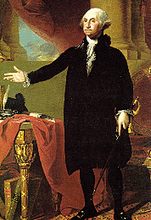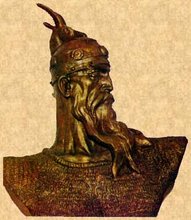In her intro to the article, which I have included below, Dr. Ramet spells out precisely the main features of Serbian National(Social)ism in plain, easy to understand language. Of course, she goes on to expand on her points within the article, which is scholarly, well-footnoted, but yet also easily accessible for the layperson. You can read the article here (IMO, it's a MUST READ). (NOTE: Boldface below is my own personal emphasis, as I believe points one and six go a long way to explaining why Serbian Nationalism, or National(Social)ism, as I prefer to call it, is both so self-pitying and so incredibly aggressively bullying at the same time.)
"This article looks at some of the recurring themes in Serbian propaganda 1986-1995, examining their operation in inculcating collective neurotic and psychotic syndromes and noting the relevance of those syndromes for the war against Croatia and Bosnia, 1991-95. Six pivotal themes in Serbian propaganda are examined:
1. Victimisation, in which Serbs were constructed as collective victims first of the NDH, then of Tito's Yugoslavia, and more specifically of Croats, Albanians, Bosniaks, and other non-Serbs. 2. Dehumanisation of designated 'others', in which Croats were depicted as 'genocial' and as 'Ustase', Bosniaks were depicted as 'fanatical fundamentalists', and Albanians were represented as not fully human. These processes of dehumanisation effectively removed these designated 'others' from the moral field, sanctifying their murder or expulsion. 3. Belittlement, in which Serbia's enemies were represented as beneath contempt. 4. Conspiracy, in which Croats, Slovenes, Albanians, the Vatican, Germany, Austria, and sometimes the Bosniaks as well as the U.S. and other foreign states, were seen as united in a conspiracy to break up the SFRY and hurt Serbia. In this way, the Belgrade regime's obstinate disregard for the fundamental standards of international law was dressed up as heroic defiance of an anti-Serb conspiracy.
5. Entitlement, in which the Serbs were constructed as 'entitled' to create a Greater Serbian state to which parts of Croatia and Bosnia would be attached, under the motto, 'All Serbs should live in one state.' 6. Superhuman powers and divine sanction. The Serbs were told that they were, in some sense, "super". They were the best fighters on the planet, they could stand up to the entire world, they were sanctioned by God himself, because of Tsar Lazar and the fact that Lazar had chosen the heavenly kingdom. Moreover, since Lazar had chosen the heavenly kingdom, the Serbs, encouraged to view themselves as Lazar's heirs, were entitled to the earthly kingdom which Lazar had repudiated, as their patrimony.





















2 comments:
Great job Peshkatari A ke kapur ndonje peshk?
When I read Dr. Ramet articles in the Balkan matters, it was amazing. . I wanted to make all points that she makes in her articles in my writing even though I ‘m very busy ans have not time to waste.. I tried to post them in the B92 webpage where anti- Albanian is horrific like in other Serb blogs. They have not change a bit even getting worst. They think about Albanians not as second citizens but like they are not existent. It is amazing how delusional these people are.
I am writing about Dr. Ramet in my blog to make her points stand out. I am learning a lot from her writings SHE REALLY HIT THE NAIL ON THE HEAD WITH ONE SHOT.
If you like to write me or exchange ideas here it is my e-mail address
Al_tirona@yahoo.com
I sometimes wonder if such propaganda was really meant to be believed To be sure, whn you read the Serb propagandists, they still live in a parallel universe but not to the extent of denying the laws of nature.
It may perhaps have worked for the proverbial semi-iliterate peasant from the Šumadija, but what about those "sophisticated" Belgrade structuralist movie critics and other intellectuals with degrees in sociology Stephen Schwartz talks about? http://www.hoover.org/publications/policyreview/3494821.html
Chip Gagnon has an alternative explanation: that such propaganda was used to prevent an alternative political discourse from emerging, to demobilize the critics of the Communist regime who were then clinging to power. He points out that pseudo-nationalism and ethnic conflict were not popular in Serbia, and that Milošević won elections by distancing himself from such political discourse.
http://www.ithaca.edu/gagnon/articles/aaass96/aaass04.htm
Post a Comment